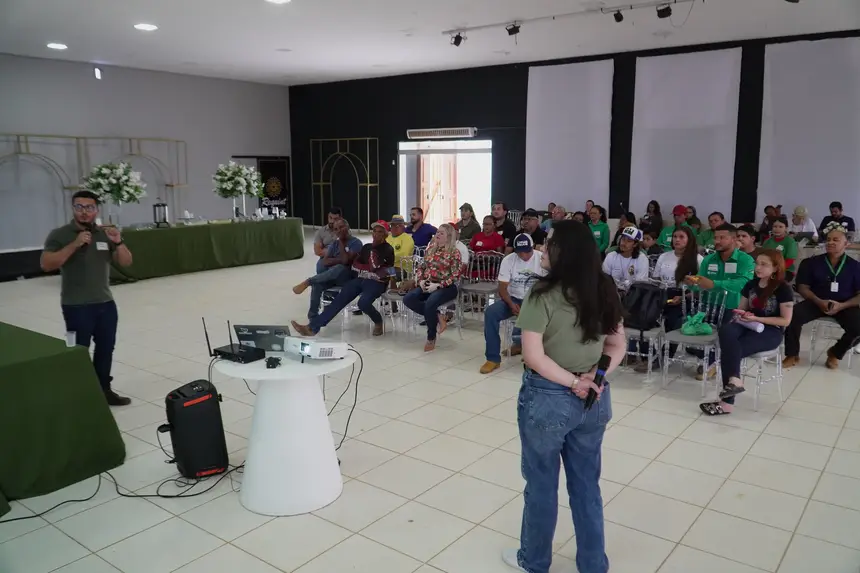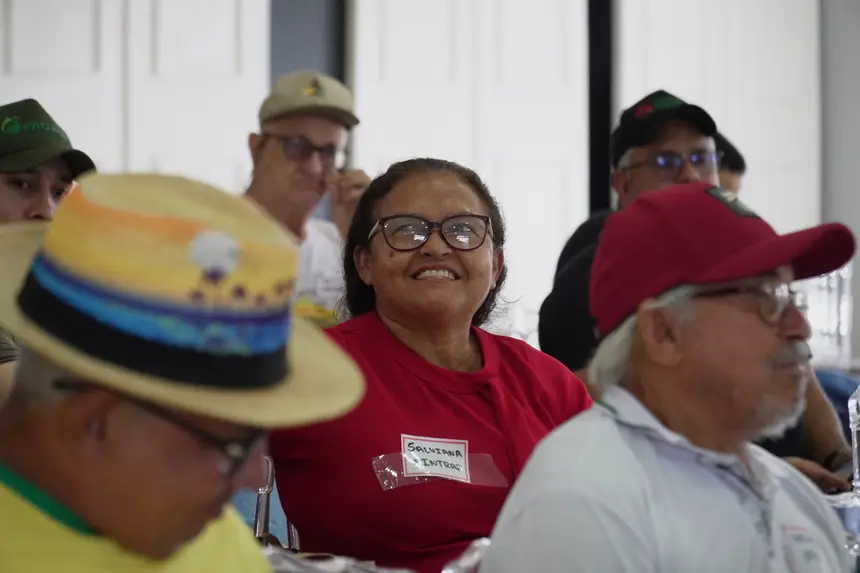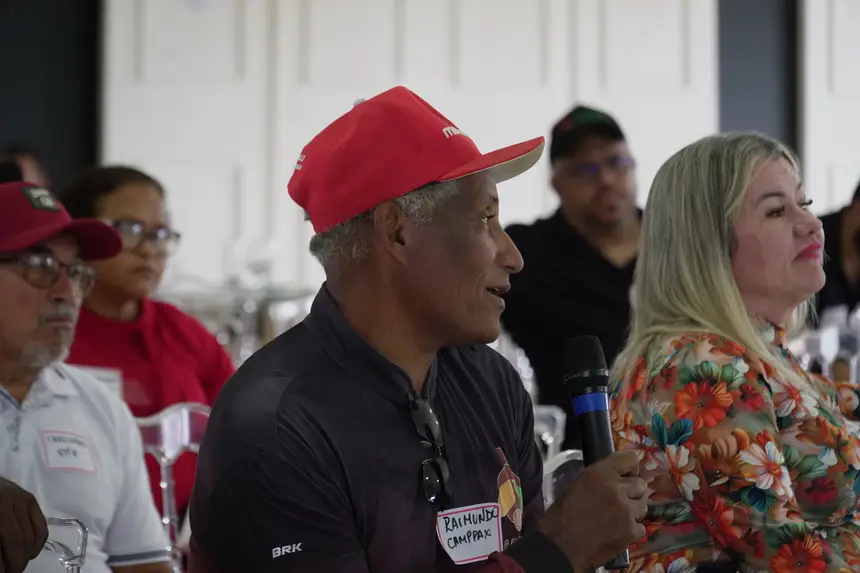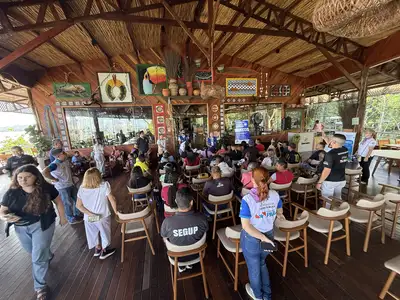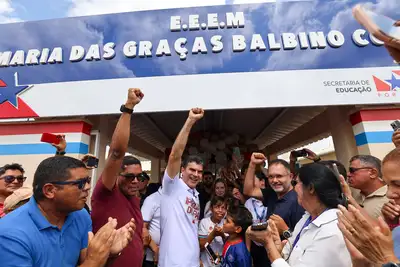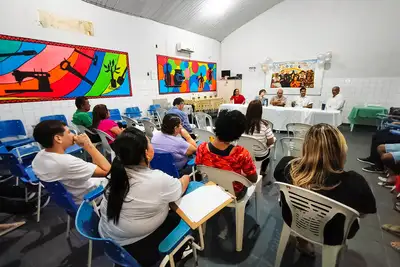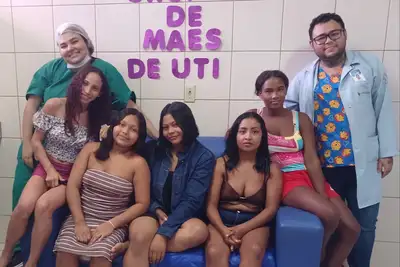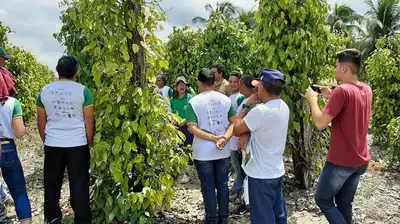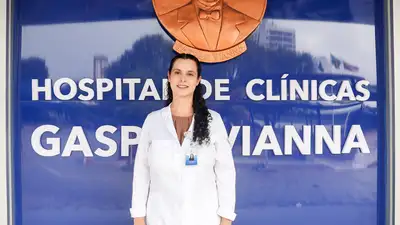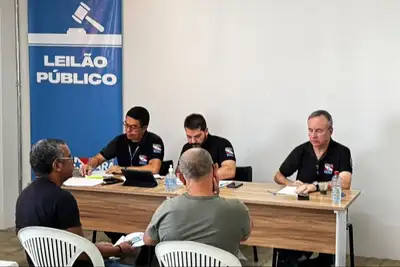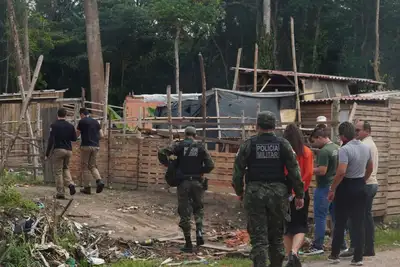Government of Pará strengthens sustainable livestock farming with workshop in São Félix do Xingu
The initiative is from the Producers and Breeders Support Center (NAP) and offers assistance and support for environmental and commercial regularization to producers
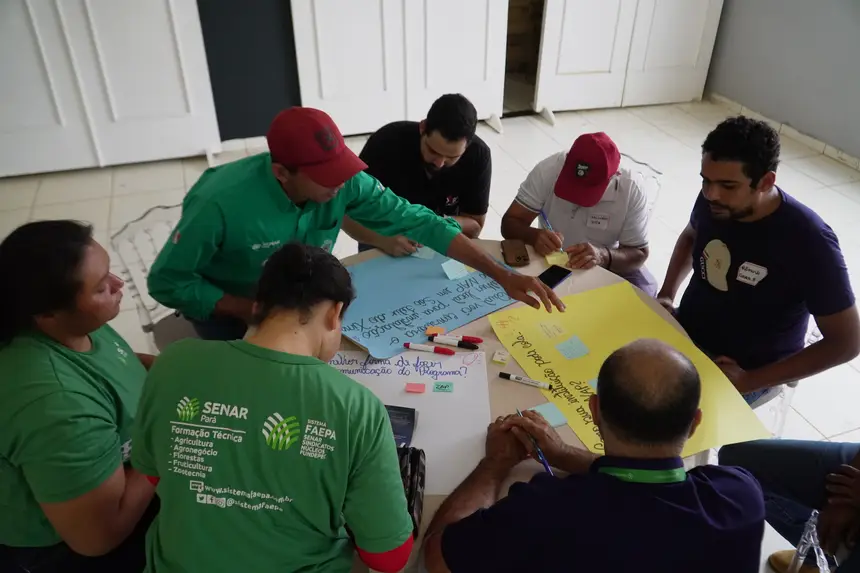
The Government of Pará, through the Sustainable Livestock Program of Pará (PPSPA), gathered producers, technicians, and public managers in São Félix do Xingu to present the Producers and Breeders Support Center (NAP) - an initiative launched by the Government, with the support of partner organizations, that brings the Government closer to the field, ensuring free technical assistance and expanding access to environmental regularization, commercial requalification, and other services in the livestock chain.
The opening table of the event included the presence of Dominique Ferreira, manager of sustainable livestock at Semas, Amanda Gandra, sustainable livestock specialist at TNC (The Nature Conservancy) Brazil; Gabriel Teixeira, Project Supervisor at IDH Brazil; Valdir Manoel, regional manager of the Secretariat of Family Agriculture (SEAF) Regional Araguaia; Fabiana Possato, veterinarian from the Agricultural Defense Agency (ADEPARÁ) in Tucumã; Cacilda Levino, vice-mayor of São Félix do Xingu; and Pedro Henrique Gomes, municipal secretary of Agriculture.
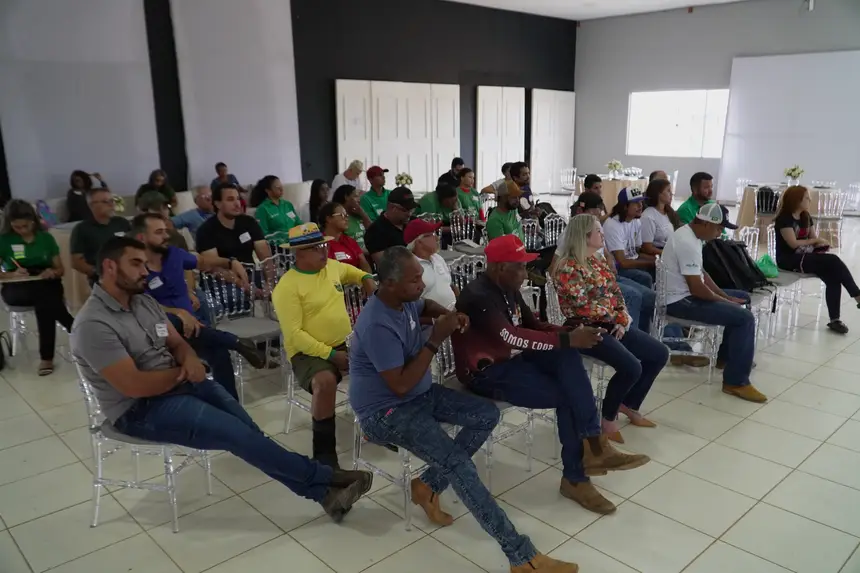
The objective of the workshop was to present the structure and services offered by the NAPs, which function as free support points for rural producers. The centers provide technical assistance, guidance on commercial requalification and environmental regularization, and referrals for credit programs and incentives for sustainable production.
“Pará has made progress in building high productivity and low impact livestock farming, with social and environmental integrity. Commercial requalification is an essential step for producers to return to the market legally, with transparency and commitment to sustainability. The State is strengthening technical support and expanding access mechanisms so that no producer is left out of this process,” said Indara Aguilar, director of Climate Change at Semas.
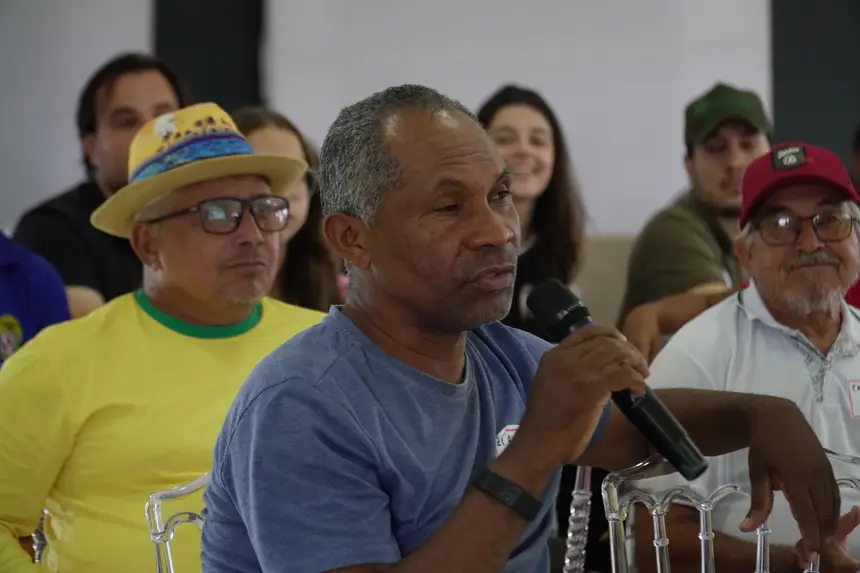
“The NAP will be essential for the municipality because it will directly serve producers who are currently prevented from selling to slaughterhouses. This support center will enable these producers to return to the formal market, in addition to promoting environmental regularization. These are processes that go hand in hand and are crucial for the sustainable development of our region,” highlighted Mário Nunes, municipal deputy secretary of Environment and Mining of São Félix do Xingu.
The workshop also included the participation of representatives from civil society and movements linked to family farming, who emphasized the importance of dialogue and unity between the State, municipalities, and partner organizations.
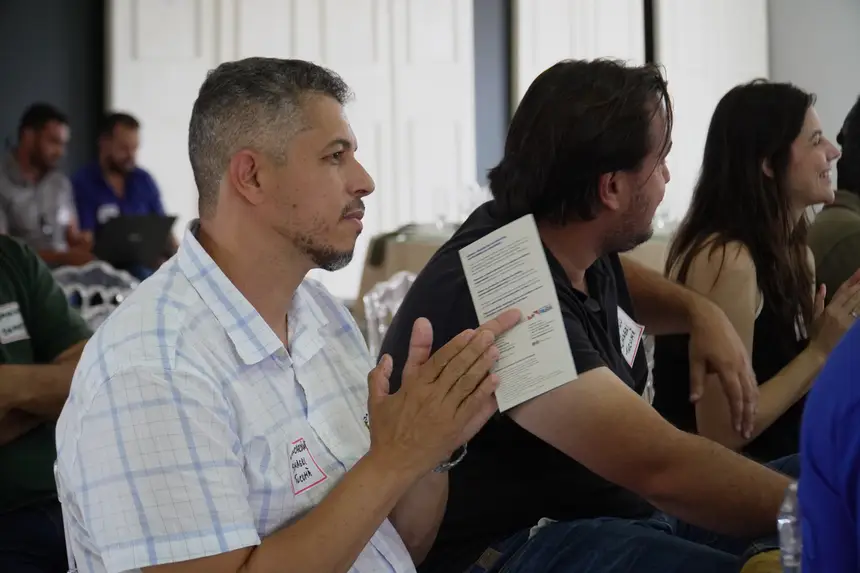
“This workshop was wonderful because it cleared up many doubts and dispelled the myth that the program would harm the producer. On the contrary, it comes to strengthen both small and large producers, ensuring that everyone can work in a regular and organized manner. It was a unique moment for our municipality, which needs to unite to strengthen livestock farming and family agriculture,” said Deuzanira Santos, rural producer and member of the Union of Rural Workers of São Félix do Xingu.
“The NAP brings great importance to family farming because for the first time we have a program that addresses the cattle of small producers. This will facilitate environmental regularization, improve the herd, and provide conditions for these families to have a more dignified life. The government deserves congratulations for the initiative, and we, from the Federation of Workers in Family Agriculture (Fetagri), are committed to contributing to this work,” emphasized José dos Santos, known as Zé Areia, coordinator of Fetagri Regional South.
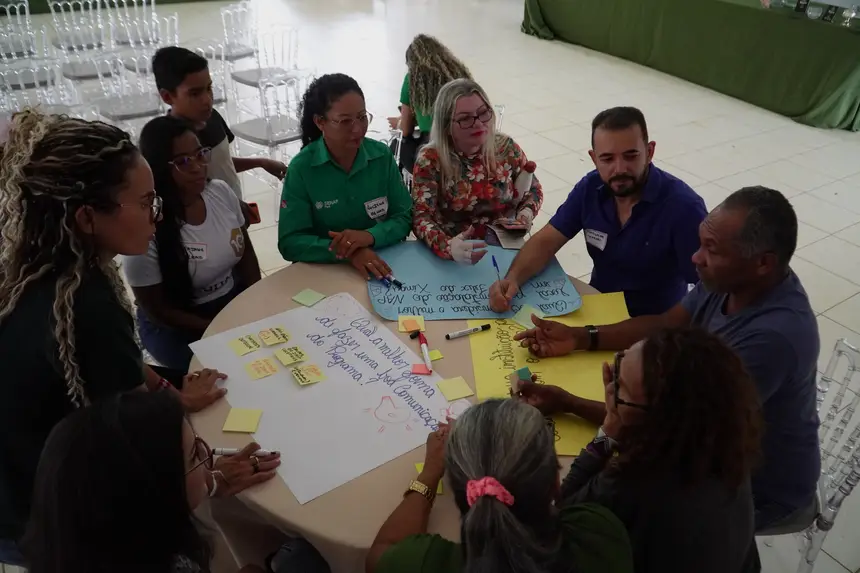
In addition to the workshop, the schedule of activities for the Sustainable Livestock Program of Pará in São Félix do Xingu includes two days of technical training, held on October 14 and 16, aimed at training professionals who will work in the NAPs, ensuring the standardization of services and strengthening the network of assistance to producers.
Project in progress - currently, the State already has one NAP in operation in Novo Repartimento, inaugurated in September, and new units are in the process of being implemented in strategic municipalities, with the aim of increasingly consolidating Pará as a national reference in sustainable livestock farming.
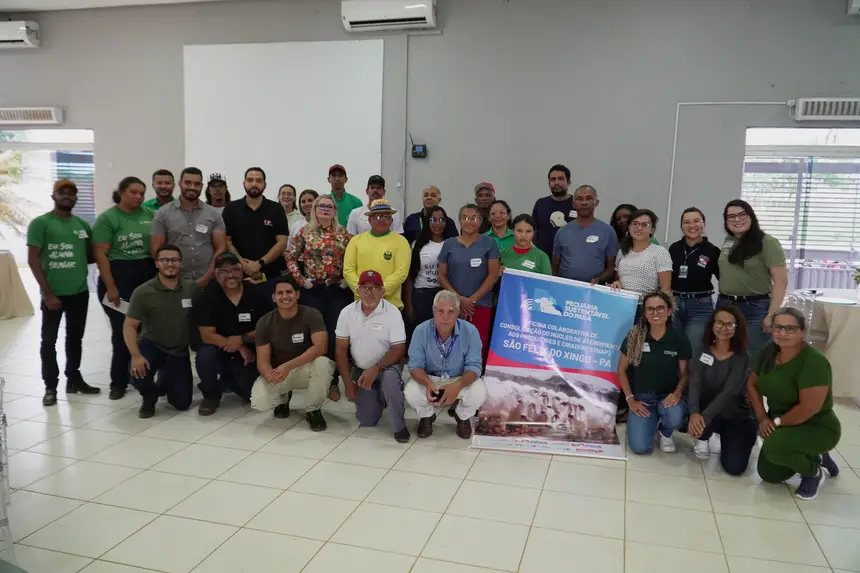
Frederico de Azevedo, technical coordinator of the company Coordenada Rural, responsible for executing the actions of the NAP in the municipalities of Novo Repartimento, Altamira, and São Félix do Xingu, shared the outcome of the two days of training. “This moment in São Félix do Xingu was very enriching for us, as we will start the activities of the NAP as a new alternative to improve service to rural producers. It was days of many explanations, clarification of doubts, and alignment between the technical team, public authorities, and participating producers. We started this work with great optimism, seeking to develop actions that truly contribute to a more qualified service to our rural producer,” he said.


